This metroidvania title has you facing off the scourge of biological life to save your robotic utopia. After spending my time blasting everything with a pulse I have a few thoughts to share.
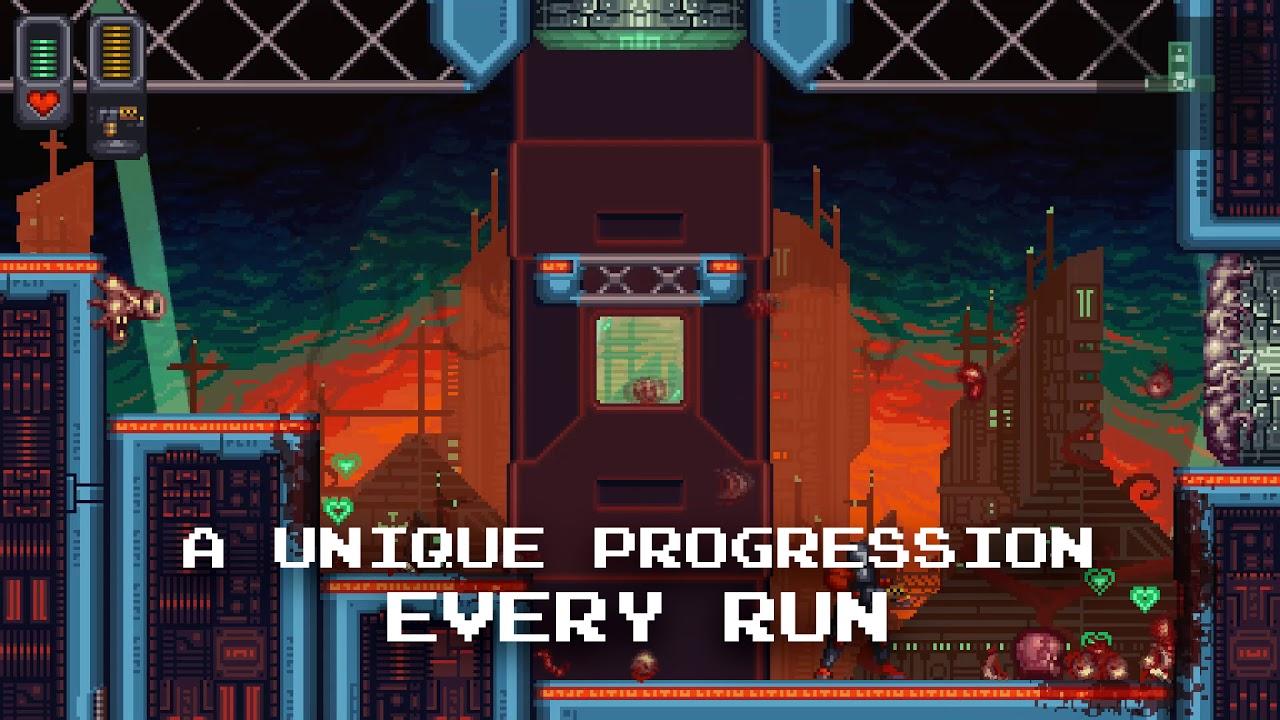
Direct Link
Note: Key provided by developer
A Robot Named Fight [Official Site] places you in the role of a lone robot that’s set on saving the mechanical civilization from the gigantic Megabeast—a massive biological entity that’s rained death and destruction on all machinekind. It hits many of the familiar gameplay beats for a metroidvania title: there’s powerups and bosses to find and defeat and several different areas to explore before facing off with the gargantuan final boss.
What sets this title apart from many other titles in the genre is that the actual map and the flow of the game is procedurally generated. Unless you use the exact seed, every playthrough is different in terms of map layout, bosses you face and the abilities that you acquire. Even after dying a couple of times and seeing how each session could play out differently, I have mixed feelings about how it works out in the end.
The actual map generation aspect is more than fine and I think that there’s a fair argument to be made about an increased replay value due to the randomization. Areas seem to be connected in a logical enough manner and items and enemies all spawn in a way that would be consistent with a more traditional metroidvania. I played somewhere in between half a dozen to a dozen new games to varying degrees of completion and never once did the map feel illogical or particularly annoying to explore.
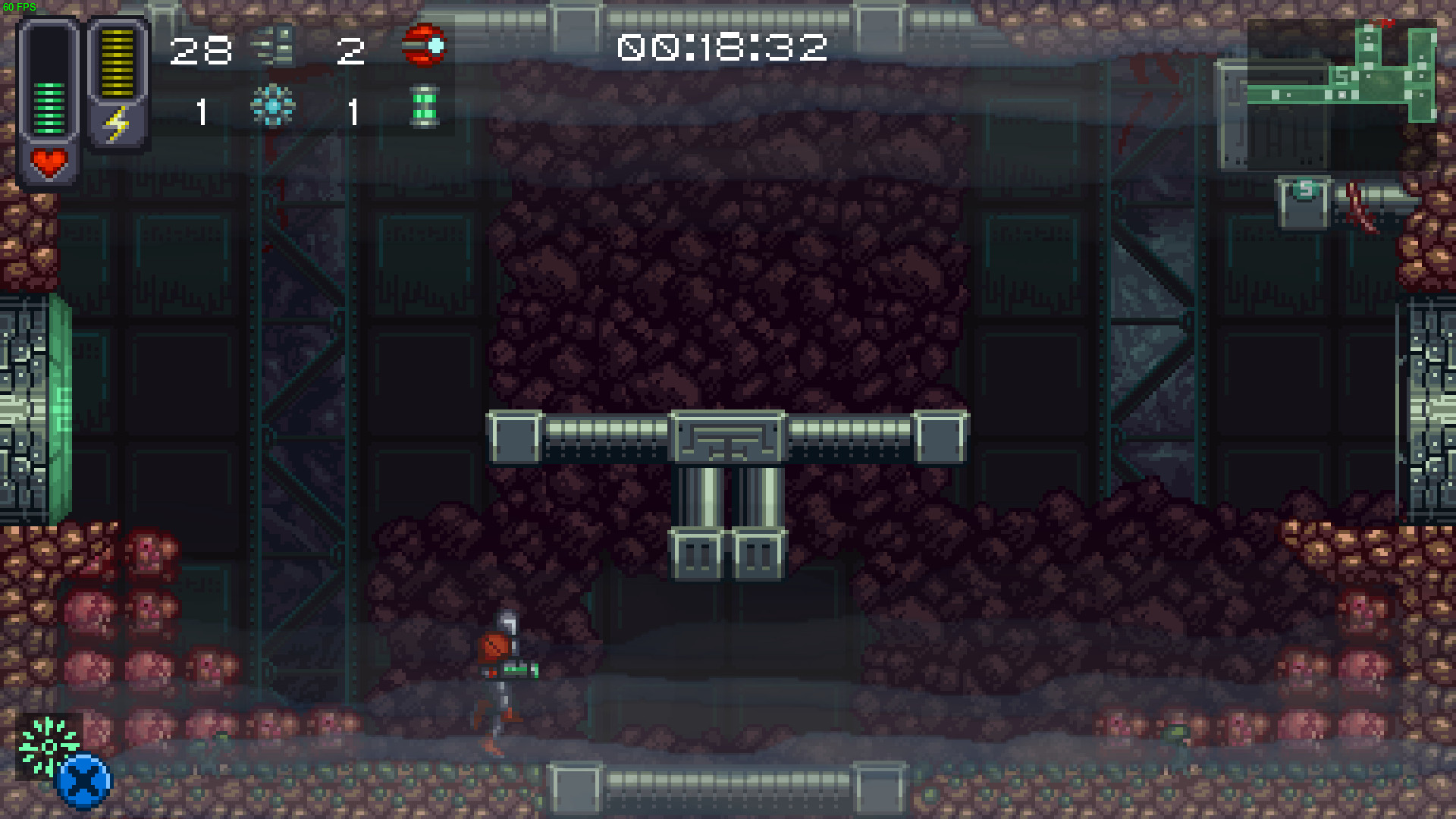 There’s a lot of items and powerups to discover across different attempts as well. A lot of this is bog-standard in your dungeon crawlers or rogue-likes and you can expect to find all sorts of things that can change how each game plays out. There are a few shops where you can buy things at and temples where you may offer a god tribute in the hopes of scoring a really rare and game-changing item. There are no RPG-like elements like levels so only your loadout and skill will affect how the game progresses.
There’s a lot of items and powerups to discover across different attempts as well. A lot of this is bog-standard in your dungeon crawlers or rogue-likes and you can expect to find all sorts of things that can change how each game plays out. There are a few shops where you can buy things at and temples where you may offer a god tribute in the hopes of scoring a really rare and game-changing item. There are no RPG-like elements like levels so only your loadout and skill will affect how the game progresses.
The problem is that, despite the random elements, progression happens in very much the same manner every time. The types of powerups you need to advance are the same in every game though the particular item may vary. For example, when you encounter an obstacle that obviously requires you to crawl through to advance you may get something like an ability to turn into a smaller spider drone or the ability make your character slide through. These feel different to use, sure, but in the end they both solve the same kind of obstacle. And the order in which you get the solution to the particular obstacle type didn’t seem to vary in my playthroughs—the end result is that I got a feeling that I was proceeding in the same way in each game despite the obviously different map and powers.
Enemy designs are appropriately chunky and biologically abominable and generally look good. A lot else, like the protagonist and certain area backgrounds, looks fairly uninspired. Too many rooms look too similar and the enemies within too familiar. There’s variety and a lot of unique areas but it doesn’t even out nearly enough for the game not to look absolutely generic in a lot of places. A good part of that is likely due to the procedural nature of the game but I found it hard to keep playing the game over again because of how bland a lot of areas look.
There’s a fine line between paying homage and lacking your own vision and I think the game straddles that line a little too closely at times. You can see in the game’s introduction, some of the special rooms and with some of the alternative powerups that there’s a good degree of talent at work. Unfortunately, that talent can feel a little misused as a lot of the time I felt that I may as well have been looking at a Super Metroid fangame. I wish that in cases like these the artists would dare to be a little bolder and confident in their own creativity. It’s perfectly alright to do your own thing and only have subtle references to the games that inspired you.
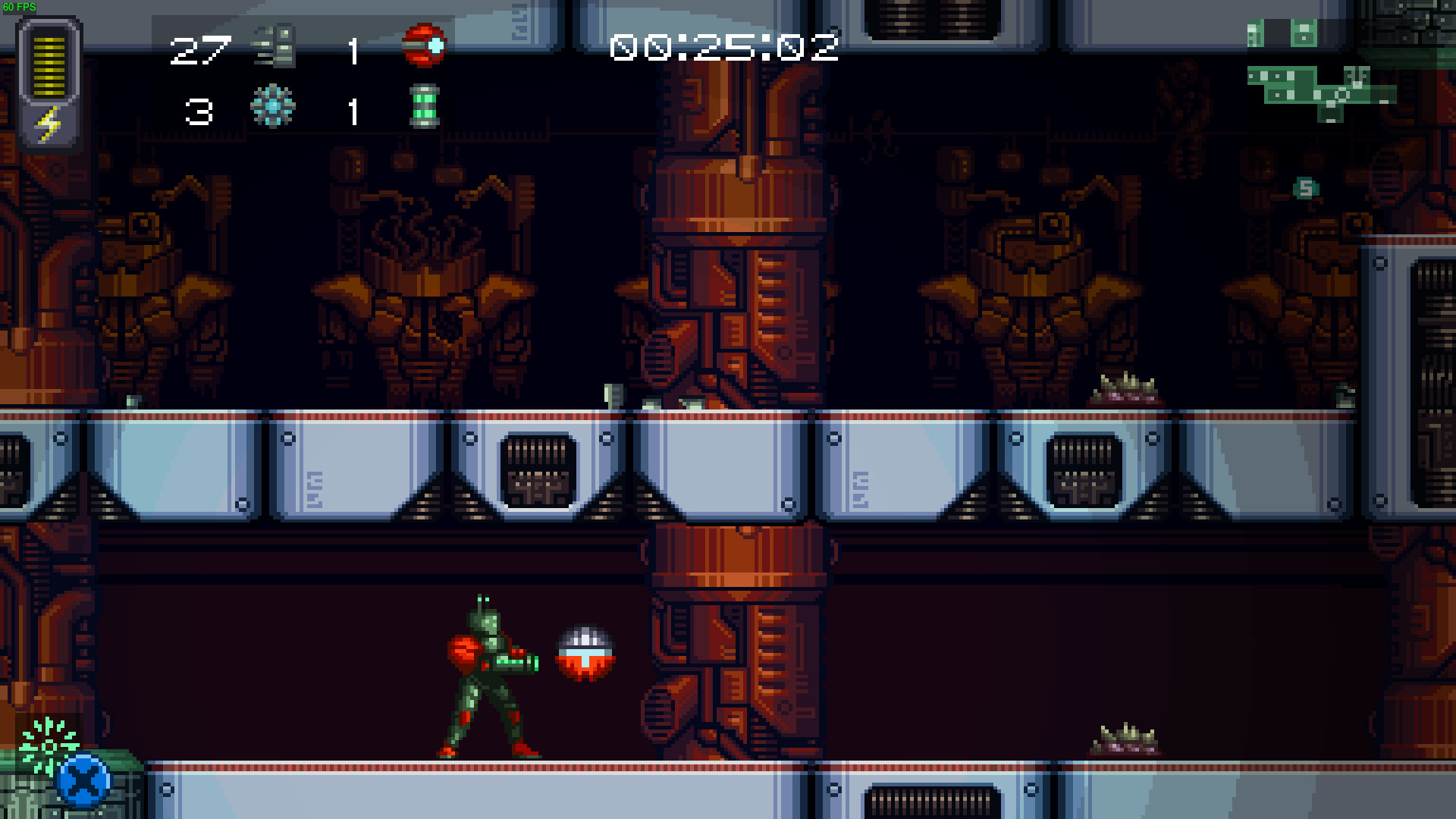 The only technical issue I had with the game was finicky gamepad mapping. I tried my range of generic gamepads and Xbox 360 controller and found that I had to adjust the bindings manually regardless. It’s not a real deal breaker but it’s something to be mindful about as I found it difficult to navigate menus with mouse and keyboard if you have a controller connected as it prioritizes the gamepad.
The only technical issue I had with the game was finicky gamepad mapping. I tried my range of generic gamepads and Xbox 360 controller and found that I had to adjust the bindings manually regardless. It’s not a real deal breaker but it’s something to be mindful about as I found it difficult to navigate menus with mouse and keyboard if you have a controller connected as it prioritizes the gamepad.
In the end, A Robot Named Fight is a competent game. There’s certainly a lot to like there and plenty of content to enjoy across multiple playthroughs. I just wish that it had tried a little more to be different, to use its gameplay elements to provide a more unique experience. In the course of reviewing this game I kept thinking back to Rogue Legacy which shares a lot of the same ideas yet manages to stand out because it does more than just being a metroidvania with rogue-like elements; it added a legacy system with generations of characters that ultimately all contribute to your eventual success. I’m not saying that that aspect needed to have been emulated. Merely that, with the glut of games of all sorts in the market, it’s often worth taking risks to stand out from the rest of the crowd.
Whether or not I can recommend A Robot Named Fight will depend on two things: on whether or not you mind that it’ll take multiple games to see everything there is to see and how willing you are to put up with fairly generic gameplay. If you’re a metroidvania fan just looking for your next fix, then it won’t disappoint you. It just won’t make that much of a lasting impression.
You can get A Robot Named Fight on Steam.
Metroidvania games are hand-crafted, with everything exactly where it was the last time you played through. The story unfolds from gradually opening up new areas and knowing that, if you miss something in the first playthrough, it will still be there the next time you play the game. Permadeath and Procedural generation are exactly the opposite of everything that Metroidvania games require. Power-ups and bosses are not enough to make something a Metroidvania. The word is going to lose all meaning.
[rant over]
I know I sound like a grumpy old man, but there are too many games coming out that claim to be both Metroidvania and Roguelike. Everyone wants to have a catchy new thing to advertise, but this just doesn't work.Thanks for writing what I was too lazy to put into words.
Metroidvania games are hand-crafted, with everything exactly where it was the last time you played through. The story unfolds from gradually opening up new areas and knowing that, if you miss something in the first playthrough, it will still be there the next time you play the game. Permadeath and Procedural generation are exactly the opposite of everything that Metroidvania games require. Power-ups and bosses are not enough to make something a Metroidvania. The word is going to lose all meaning.
[rant over]
I know I sound like a grumpy old man, but there are too many games coming out that claim to be both Metroidvania and Roguelike. Everyone wants to have a catchy new thing to advertise, but this just doesn't work.Genres are ambiguous and ill-defined as is and we could spend all day talking about what constitutes an RPG, for instance. I don't think that roguelike/lite elements or whatever term you want to apply for procedural generation and randomization is necessarily a bad combination with these sorts of platformers. I mentioned Rogue Legacy in the review and that's definitely a metroidvania that works really well because of the randomization, not in spite of it. Maybe it's the exception that proves the rule, as I don't think I've seen another game pull the combination off well, but I just don't think that it's as black and white as you're putting it. And this is coming from another grumpy old man who thought that Hollow Knight was likely the best game of 2017 ;)
[...]The word is going to lose all meaning.
I mentioned Rogue Legacy in the review and that's definitely a metroidvania that works really well because of the randomization, not in spite of it. Maybe it's the exception that proves the rule, as I don't think I've seen another game pull the combination off well, but I just don't think that it's as black and white as you're putting it.The thing is, Rogue Legacy doesn't work very well for me. It just bores me in the same way sandboxes do. Not enough sense of progression or accomplishment. I don't get at all the same feeling from it as I get from a traditional metroidvania. It's a competent platformer of course, and it clearly takes cues from the metroidvania genre. I just think it leaves out something essential and replaces it with something lacklustre and tedious.
The thing is, Rogue Legacy doesn't work very well for me. It just bores me in the same way sandboxes do. Not enough sense of progression or accomplishment. I don't get at all the same feeling from it as I get from a traditional metroidvania. It's a competent platformer of course, and it clearly takes cues from the metroidvania genre. I just think it leaves out something essential and replaces it with something lacklustre and tedious.I loved the sense of progression I got via both via upgrades and the generational character gameplay twist. By the end of the game I did feel a lot of accomplishment for all the effort that it took to get there. Exploring the castle was fun as were the quirks the game threw at you, it never felt tedious to me. Since we had opposite experiences it looks like we're going to have to agree to disagree :)
Since we had opposite experiences it looks like we're going to have to agree to disagree :)I guess it would be a bit silly to expect everyone to have the same taste in entertainment. It's not like we're talking about hard facts here so it's perfectly natural to have different experiences. In matters of taste there are only opinions. Professional art experts and critics can go cry in a corner. :P
My degree is in litcrit, so . . . waaahhh!!! :'(Since we had opposite experiences it looks like we're going to have to agree to disagree :)I guess it would be a bit silly to expect everyone to have the same taste in entertainment. It's not like we're talking about hard facts here so it's perfectly natural to have different experiences. In matters of taste there are only opinions. Professional art experts and critics can go cry in a corner. :P
Genres are ambiguous and ill-defined as is and we could spend all day talking about what constitutes an RPG, for instance. I don't think that roguelike/lite elements or whatever term you want to apply for procedural generation and randomization is necessarily a bad combination with these sorts of platformers. I mentioned Rogue Legacy in the review and that's definitely a metroidvania that works really well because of the randomization, not in spite of it. Maybe it's the exception that proves the rule, as I don't think I've seen another game pull the combination off well, but I just don't think that it's as black and white as you're putting it. And this is coming from another grumpy old man who thought that Hollow Knight was likely the best game of 2017 ;)Please take all my comments below lightly. I love your reviews and I think our taste in games is similar in a lot of ways.
- I think procedural generation can certainly work in some genres. While I liked SteamWorld Heist, I haven't found many procedural games that I actually like. That doesn't mean they are bad. As you say, it is just my taste.
- I am not against new things. The whole soulsvania branch is wonderful, with games like Salt & Sanctuary or Hollow Knight. Some things just work well together, and some things don't.
- To me, Rogue Legacy is nothing like a metroidvania. You end up playing the same 10 rooms over and over again to get anywhere. Where is the fun in that? Where is the story progression? Imagine if you took Axiom Verge and sent your character back to the beginning every time you died! Then, everything moved around for no particular reason other than the game dev couldn't bother taking the time to hand-craft a world for you to explore.
- I am glad other people seem to love these games. Diversity is important in the game world, just like the natural world. Who knows what game evolution will bring us after many years? (Even if I don't like what they look like now!)
Edit for spelling.
Last edited by no_information_here on 4 Jun 2018 at 9:42 pm UTC
Please take all my comments below lightly. I love your reviews and I think our taste in games is similar in a lot of ways.Don't worry about disagreeing, I'd never claim to be objective about matters of taste :P
I get where you and others are coming from and I certainly respect that people's preferences in their entertainment can be different than mine. That's why in the reviews I write up I try to explain why I felt a certain way. That's so that even if you disagree you might, at the same time, understand how you might feel about the same thing in a game. It's also why I rarely reply to comments in articles (though I read most of them) unless they're asking me to talk more about something I might have brushed over or trying to correct me on something objective (like a launch option, driver issues or whatever). People should be free to voice their opinions as it's often helpful for other gamers to see how different people feel about a game that they might be curious about.
As a final aside: I personally am unconvinced by the "soulsvania" subgenre you just mentioned. While I loved Hollow Knight, I found Salt & Sanctuary clunky and I bounced off it after about two hours. I think I understand why people would love it and I plan to give it another shot some day but I think it's a good example of how even people with similar tastes can differ in opinion for specific examples :)
Last edited by BTRE on 4 Jun 2018 at 9:29 pm UTC
While I loved Hollow Knight, I found Salt & Sanctuary clunky and I bounced off it after about two hours.Interesting. I ended up playing it through twice back to back to get all the achievements. I know that the "souls" approach is definitely not something everyone likes, though. It takes a lot of commitment to grinding your (real-world) skills up.
You can get A Robot Named Fight on Steam.Link is broken
Last edited by axredneck on 6 Jun 2018 at 5:10 pm UTC
...Some games in Steam are DRM-free and run perfectly without Steam
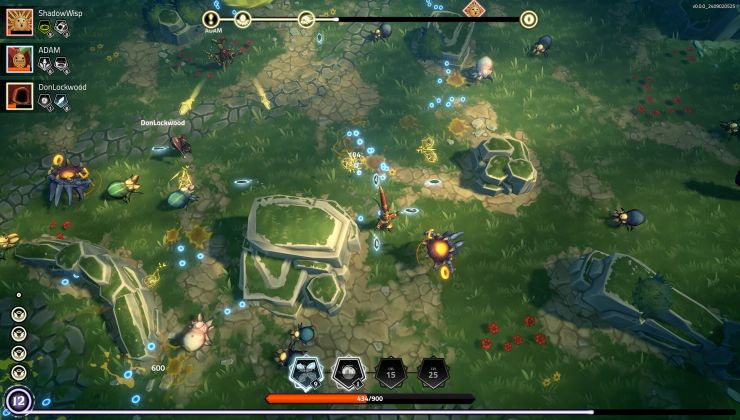
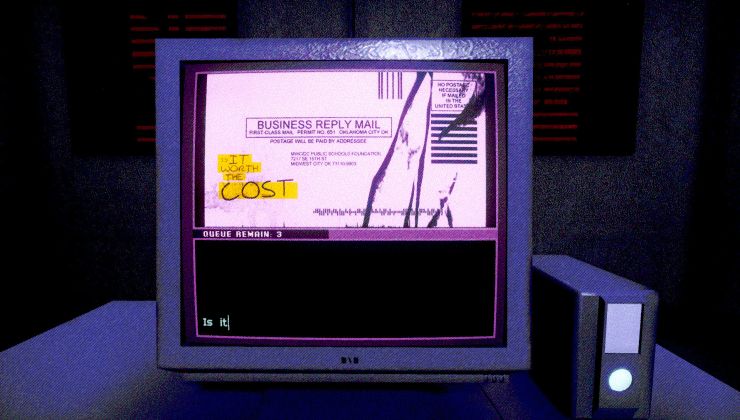

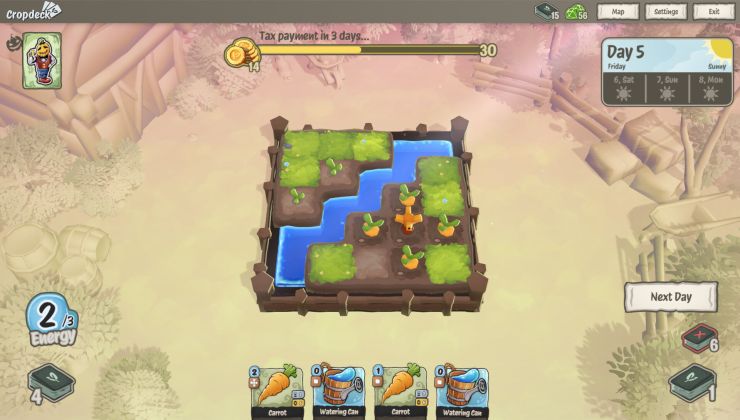





 How to set, change and reset your SteamOS / Steam Deck desktop sudo password
How to set, change and reset your SteamOS / Steam Deck desktop sudo password How to set up Decky Loader on Steam Deck / SteamOS for easy plugins
How to set up Decky Loader on Steam Deck / SteamOS for easy plugins
Oh and the name doesn't mean anything but coincidentally could be pronounced as "Buttery" which suits me just fine.
See more from me